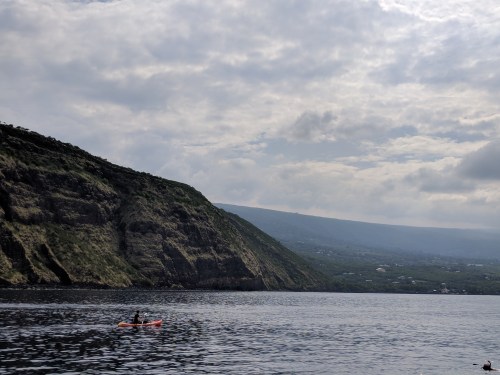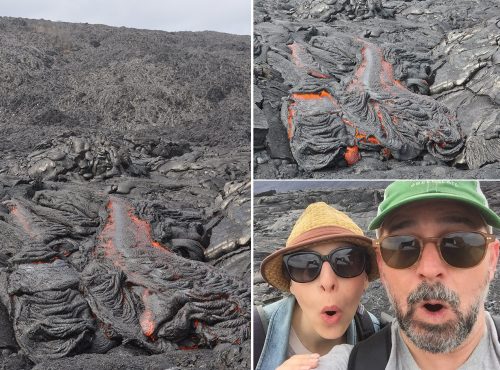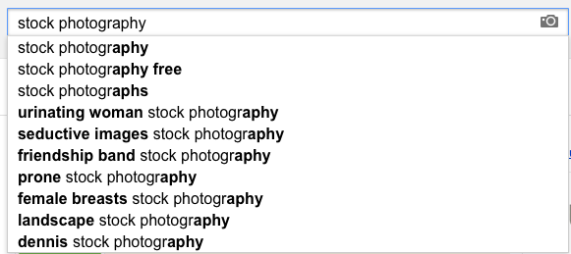See (& share) it on self.com
“We all know someone who has had breast cancer. Given that one in eight women in this country will develop breast cancer at some point in her life, you probably know more than one person. I do. For me, breast cancer has always looked like the survivors I know—an aunt, a good friend’s mom, an old family friend. I don’t picture young women with breast cancer. Women like me.”
I wrote that in an article published October 29, 2016. Ten months later, at the age of 36, I was diagnosed with breast cancer. Shows what I know.
I got the call on a Tuesday. September 5, 2017, the day after Labor Day. It was a beautiful, sunny morning, and I was walking my mini pit bull, Rosie, in the park at the end of my street, near the bench where the old men sit, where I once saw a dead mouse. The radiologist told me the mass was malignant and I asked what in retrospect were far fewer questions than I probably should have had. I scheduled an MRI for Thursday morning. I called my husband. Rosie and I looped around the north end of the park and I picked up her poop. We crossed Second Avenue and went back to the apartment. Then I went to work.
In journalism, lead time is the period between when you start a story and when it goes to press. Since October is Breast Cancer Awareness Month, September is when online health journalists like me get bombarded with publicist pitches for the pinkwashing to come. As I sat in my office, on the 36th floor of the World Trade Center, roughly every other email that popped up in my inbox was about breast cancer.
I typically open less than a third of the emails I get in a day. Only rarely will the subject line on an email pitch entice me enough to click. I’m the opposite of a zero-inbox person; I’d rather let unopened emails accumulate until my account is moribund with bold-fonted appeals than take the time to hit delete on each letter I decline to read. It’s laziness dressed up as efficiency. But after Labor Day, my ignoring became active, forceful, defiant, afraid. Each subject line stung as I willfully, flinchingly refused to click.
“BCA Stories – Meet Marit.” “Breast Cancer Patients Use Art and Photography to Tell Their Stories.” “Lessons From Rita Wilson’s Breast Reconstruction Journey.” “Fight Breast Cancer With Good Nutrition – Check out these tips!” “Interview? Terminal cancer sparks a climber’s new sense of motivation.”
The pileup was unbearable. I started filing each one as it appeared into a dedicated folder.
“5 wellness tips to prevent breast cancer”
Too late.
“Staying Positive on the Path to Breast Cancer Survival”
Not off to a great start.
“BASE COAT Breast Cancer Awareness Promotions”
Oh, sure, a manicure! That’s what I need!
“Breast Cancer Awareness Month: Expert Commentary”
I’m aware. Jesus Christ, I’m fucking aware.
The onslaught was comical, painful. And I felt like an asshole. If ever there was a time in my life when I should be motivated to open my emails. I could be a voice for these women! I can save lives! I should care more deeply and more personally than I have ever cared before! The good is mine to do! Yet each one—each human story, each piece of advice, each company making a difference—made me want to throw up a little bit in my mouth. I hated these women I didn’t know. I didn’t want to hear about, let alone write about, their tales of struggle and survival. I’d only just been initiated into the society of Breast Cancer Patients and already I was a traitor. I was in a unique position to tell their stories, and instead I was silencing them. Turning them away. Turning away.
Not that there was anywhere to turn. Not when writing about breast cancer is part of your job. My coworker told me she had just finished a story about an emerging approach to breast reconstruction. A video called “How People With Breast Cancer Stay Positive”—part of a series I’d put together the October before—mysteriously appeared at the top of the search results as I looked for something else. I logged into our website’s content management system and was surprised to notice the article I’d written to accompany the series had been recently updated. I checked the latest revisions and found that my editor had shoehorned the Google search term “young women with breast cancer” awkwardly into the first line. I opened the file and changed it back.
That week, a movie crew was filming down the block from my apartment. I live near an old church on a quiet street across from a charming little park that looks less little if you get the right angle on it, so I’m used to stepping over lengths of cable running along the gutter and passing the craft services tent where I’m always tempted to grab a danish. (Seriously, who would know?) There was a piece of fuchsia paper taped hastily to a lamppost, one of the signs directing cast and crew to important places on set. An arrow pointed at me from under the letters B R E A S T. I was stunned, until I realized the paper had wrinkled in the wind: It said “breakfast.” A garbage truck rumbled noisily up Third Avenue painted entirely pink and I yelled out despite myself, “You gotta be fucking kidding me.”
Like that truck, the articles about breast cancer I’d written and edited over the years barreled into my consciousness. My expertise helped and haunted me. I knew too much, and not enough. Moot was that article about how to perform a self-exam when the lump in my right breast grew so big that my husband could see its contours through my flesh. Having a working knowledge of hormonal birth control, I knew that stopping it (which I’d done) could enlarge a cyst (which I had), so I reasoned the lump was benign and didn’t go to the doctor for months. After receiving my diagnosis, I was calm; I thought, they’ll cut it out, they do this all the time. As though I hadn’t researched tumor staging and typing. Like I didn’t know all about mastectomy and metastases and chemo and recurrence.
When I found out I had a BRCA gene mutation I reread an article I’d edited called “What It Means If You Have a BRCA Gene Mutation.” When I decided to have a double mastectomy and reconstruction I reread “11 Things No One Tells You About Getting a Double Mastectomy and Reconstruction.” I digested them differently now. I started distrusting myself and what I held to be true. There’s not convincing evidence that antiperspirant causes breast cancer, yet I eyed my invisible solid warily, wondering, What if I’m wrong? What if I did this? There is convincing evidence that drinking alcohol increases the chances of developing breast cancer, yet I haggled with my oncologist over my nightly glass of white wine. Recently I came across an article I’d written that never got published listing 12 health rules I actually follow, as a health editor. I thought about reviving it, then worried I’d lost my credibility. Who wants to take health advice from someone who got cancer?
Like me, Angelina Jolie carries the BRCA-1 mutation that increases the likelihood of ovarian cancer. After she underwent prophylactic removal of her ovaries, we ran a story on the site in which she claimed to “love” being thrust into early menopause. My treatments put me into menopause, too, and during hot flashes, I’d remember that story and think, Fuck Angelina Jolie.
Also: I’m sorry, but fuck Julia Louis Dreyfus, too. A few days before I was going to reveal my diagnosis at an editorial staff meeting, she tweeted about hers. We covered the news, of course, and I felt like she really stole my thunder. I got scooped by Elaine!
I received 16 rounds of chemotherapy, had a double mastectomy and breast reconstruction, yadda yadda yadda, today I’m cancer free. Right after Labor Day I celebrated my canceversary, a year since being diagnosed. Then I went to work.
Right on schedule, the Breast Cancer Awareness Month emails came pouring in. One by one, I filed them into a separate folder. Maybe next year I’ll open them. For now, I’m still working on my own story.













So This Is What I’m Missing on Facebook
Thanks to my little bro for sending me this golden nugget from the New York Knicks’ facebook page. He tells me that the admin posted the picture below with the caption “Browse through the Knicks City Dancers Auditions gallery from this past weekend. Over 500 dancers graced The Sports Center at Chelsea Piers to compete for a spot on the 2012-13 squad.”
Fair enough. But god help me, the comments. Really, guys, blodes prefer gentlemen.
Quoth the bro: “I don’t know exactly what to make of this, but let’s just hope the age of the internet comment is coming to an end.”
Personally, I choose Oblivion.
2 Comments
Posted in Information Stupor Highway
Tagged comments, facebook, morons, new york knicks city dancers